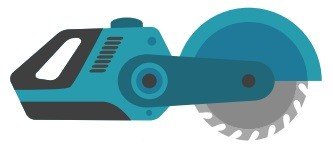Power Tool Sale It's Not As Hard As You Think
페이지 정보

본문
 Power Tool Sales and Marketing Strategies for B2B Retailers
Power Tool Sales and Marketing Strategies for B2B Retailers Power tools are crucial for both professionals and users. Despite the fact that 2021 will see a slowdown due to the COVID-19 pandemic, the demand is still at or near levels prior to the pandemic.
Power tools are crucial for both professionals and users. Despite the fact that 2021 will see a slowdown due to the COVID-19 pandemic, the demand is still at or near levels prior to the pandemic.Home Depot is the leader in the sales of power tools based on dollar share. Lowe's follows closely behind. Both are competing against power tools manufactured in China.
Tip 1: Make an Efficacious Brand Commitment
Many manufacturers of industrial products place more emphasis on sales than marketing. This is due to the fact that the long-term sales process requires a lot back-and-forth communication and detailed knowledge of the product. This kind of communication isn't conducive to emotional marketing tactics.
Nevertheless, industrial tools manufacturing companies should think about rethinking their marketing strategy. The digital age has outpaced traditional manufacturers who depend on a small group of distributors and retail outlets to sell their products.
Brand commitment is a key factor in power tool sales. If a client is committed to a brand and is loyal to a brand, they are less prone to messages from competitors. In addition, they are more likely to purchase the product of the client again and recommend it to others.
To be successful in the United States market, you must have an organized strategy. This includes adapting tools to local requirements, positioning brands in a manner that is competitive and using marketing platforms and distribution channels. Collaboration with local authorities, associations and experts is also essential. You can be certain that your power tool will meet the requirements and standards of the country when you do this.
Tip 2: Be aware of Your Products
Retailers need to be knowledgeable about the products they sell, especially in a market which places a great value on product quality. This will enable them to make informed decisions about the products they can offer their customers. This knowledge could also be the difference between a good deal and a bad one.
Knowing which tool is ideal for a specific project will help you match the right tool to the requirements of your customer. This will help you build trust and loyalty with your customers. It will also give you the confidence that you're providing a complete solution.
Understanding DIY cultural trends can help you better understand your customers' needs. As an example increasing numbers of homeowners are completing home renovation projects requiring the use of power tool. This can lead a spike in sales of power tools.
According to DurableIQ, DeWalt is the leader in power tool sales with 16%. However, Ryobi and Craftsman have seen their share decrease year-over-year. Despite this the fact that both in-store and online purchases are on the rise.
Tip 3: Offer Full-Service Repair
The most frequent reason that a buyer makes a purchase is to replace one that is been damaged or broken, or to embark on an entirely new project. Both of these can be used to increase sales and additional sales.
According to the Home Improvement Research Institute's (HIRI) 2020 Power Tools and Accessories Product Purchase Tracking Study 35 percent of purchases of power tools resulted from a planned replacement. These customers may require additional accessories, or upgrade to a more powerful model.
Your customer may have experience in DIY or is just beginning the hobby, they will have to replace carbon brushes, drive cords and power cords of their tools in time. Being on top of these important items will help your customer get the most out of their investment.
Technicians must consider three important aspects when purchasing power tools the application, the way it will be powered and safety. These factors aid technicians in making informed choices about the best tools to use for their repairs and maintenance work. This allows them to optimize the performance of their tools and reduce the cost of ownership.
Tip 4: Keep Keeping Up With Technology
For example, the latest battery tools have intelligent technology that enhances the user experience and differentiates them from other brands that still depend on old-fashioned battery technology. B2B wholesalers that carry and sell these devices can increase sales by focusing on tech-forward contractors and professionals.
Karch's business, which has more than 30 years of experience, and a 12,000 square feet tooling department is a testament to the importance of keeping up-to-date with new technologies. He says that manufacturers are constantly changing their designs for their products. "They used to hold their designs for five or ten years, but they're now changing them every year."
In addition to embracing modern technologies, B2B wholesalers should also concentrate on improving their existing models. By incorporating lightweight materials as well as adjustable handles, wholesalers can reduce fatigue caused by prolonged use. These features are essential for a lot of professionals who must utilize the tools for lengthy periods of time. The power tool industry is split into consumer and professional groups. This means that the biggest players are constantly striving to improve their designs and come up with new features in order to reach a wider market.
Tip 5: Create a Point of Sales
The online marketplace has transformed the market for power tools. The advancements in data collection techniques have allowed professionals in the field to get an entire perspective of market trends, allowing them to shape marketing and inventory strategies more effectively.
Point of sale (POS) data for instance, allows you to track the types of projects DIYers undertake when they purchase power tools and other accessories. Knowing what projects your customers are working on allows you to upsell and offer add-ons. It helps you anticipate your customers' needs to ensure that you have the right products in hand.
Moreover, transaction data enables you to spot trends in the market and adjust production cycles in line with. You can, for example utilize this data to track fluctuations in your retail partners' and brand's market share. This allows you to align your strategy for product to consumer preferences. POS data can also be utilized to optimize inventory levels, which reduces the risk of stocking up. It also helps to assess the effectiveness of promotional campaigns.
Tip 6: Be a good neighbor
Power tools are a complicated, high-profit market that requires a significant amount of sales and marketing effort to stay in the game. The most common methods of gaining a strategic advantage in this industry were by establishing pricing or positioning of products, but these tactics no longer work in the omnichannel world of today where information is distributed so quickly.
Retailers who concentrate on service are more likely to retain customers and build brand loyalty. Mike Karch, the president of Nue's Hardware and Tools, powertoolsonline located in Menomonee Falls, Wisconsin, runs a 12,000 square foot power tool section. His department initially featured several brands. However, as he listened to contractors, he discovered that they were loyal to their favorite brand.
Karch and his staff members ask their customers what they intend to do with a tool before showing them the alternatives. This gives them the confidence to recommend the best tool for the job and builds trust with the customer. Customers who are familiar with their product are less likely to blame their supplier for a tool failure during the course of work.
Tip 7: Create a Point of Customer Service
Power tool retailers are in an extremely competitive market. Those who have seen success in this category tend to have a strong commitment to a particular brand rather than merely carrying a sampling of manufacturers. The amount of space a retailer has to devote to this category can also affect how many brands it can carry.
When customers visit a store to purchase an electric tool and require assistance, they usually need help choosing a product. Sales associates can provide professional guidance to customers looking to replace a broken tool or undertaking the renovation of their home.
Mike Karch, the president of Nue's Hardware and Tools, located in Menomonee Falls, Wisconsin, said that the employees at his store are educated to ask questions that can result in an offer. They start by asking what the customer is planning to use the tool for, he says. "That's the most important factor to consider when deciding the kind of tool to offer them," he adds. Next, they ask about the project and what level of experience the client has with different types of projects.
Tip 8: Create a Point of Warranty
The manufacturers of power tools differ greatly in their warranty policies. Certain manufacturers offer a full warranty, whereas others are more limited or do not offer warranties for certain tools. It's important for retailers to be aware of these differences before purchasing, as customers will purchase tools from firms that provide them with a warranty.
Mike Karch is the president of Nue's Hardware and Tools, located in Menomonee, Wisconsin. He has a 12,000 square-foot power tool department as well as a repair shop on site that repairs 50 different lines of tools. He has observed that many of his clients are loyal to a particular brand. Therefore, he prefers to carry a select few brands rather than carry samples of different products.
He is also happy that his employees have the ability to meet with vendors one-on-1 to discuss new products and give feedback. This personal contact is crucial because it builds trust between the store's clients and employees. Good relationships with suppliers can even result in discounts for future purchases.
- 이전글Ten Lexus Replacement Keys That Really Improve Your Life 24.12.15
- 다음글What's The Current Job Market For Leather Sofa And Loveseat Set Professionals Like? 24.12.15
댓글목록
등록된 댓글이 없습니다.
